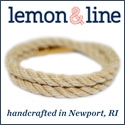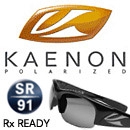
|
|
Scuttlebutt News:
It's a short list of people that are as dominant as a competitor as they are competent as a principal race officer. Our list only has one... California's Bruce Golison. With countles titles already to his name, Golison won the 2010 Etchells North American Championships in San Diego, and then traveled to Marblehead in Massachusetts to run the 2011 edition. Scuttlebutt checked in with Golison about his experience wearing both hats: Peter Craig is one of the best PRO's in the world, and he asked me to come down to his Key West Race Week regatta and help out on the water. I had been hosting an annual keelboat regatta in Southern California, but I was always onshore and was looking forward to learning about it from one of the top Principal Race Officers (PROs). After two years of being his 'caddy', Peter said he had too much to do ashore running the event and that I would be taking over running the big boat circle as the PRO. Running the grand prix big boat circle with six classes at Key West for my first time as a PRO was sort of like being thrown in the deep end of the pool while learning to swim. Fortunately, I had an awesome group of talented race committee people supporting me and things went well. For the next eight years I ran one regatta a year, which was the big boat circle at Key West Race Week. With the downturn in entries at Key West three years ago, the event went to three circles and I stepped out. But I had developed a passion for running races in the manner that I thought that they should be run, and was looking for new challenges. I picked up the phone and called Harry Melges and Andy Burdick at Melges Performance Boats and after a good conversation on racing, I found myself running Melges 32, Melges 24 and Melges 20 class regattas, and it has taken off from there. There are multiple reasons for this. First and foremost is that this is being driven by the one design classes themselves. As boat owners travel from place to place for their major regattas, the time and financial commitments to do so have become quite substantial. The expectation of having consistently well managed regattas is most important to them. Another key component is having PRO's who are familiar with their own class's preferences. All of this is why many competitive classes look to bring in a PRO who they are comfortable with. It simply takes a level of uncertainty out of going to a new venue.
The challenge for a PRO coming in to someone else's backyard is to successfully integrate into the local race committee team. I understand that we are seen as outsiders. The progressive yacht clubs welcome the opportunity to see and learn new or different race management styles from the guest PRO, and vice versa. My goal when doing this is to quickly become a part of the local team. This means starting the relationship well before the regatta begins. It's working with the club's regatta and race committee chairs on equipment and personnel matters and building a trust. It means when you arrive on site, every effort is made to meet the race committee team and to listen and involve the team in the overall management of the event. I always thank people for their contributions and try to make it fun for them to be on the race committee. I always try to leave an event having made a good impression with everyone involved, and having made some new friends. Besides knowing the basics, there are many intangibles that make for a really good PRO. As a much respected PRO once told me, the top PRO's all have different strengths that make them stand out. For me personally, I rely on my experience as a current top level competitor racing in competitive classes. I base EVERY decision I make as a PRO on what I would like to see happen at any given moment if I was racing in the regatta - are the conditions right for racing, how long should the legs be, is the starting line angle and distance set correctly to get the fleet off, is the breeze shifting and should I account for a slight shift on this leg, should I shorten the second beat, and so on. During every race, I am constantly watching what is happening on the race course and thinking ahead as if I was calling tactics and trying to determine what could change next on the race course. I am always thinking ahead and ready to adjust for the next change. In addition, I am a strong proponent of communication with the fleet. I don't want there to be any surprises and I want the competitors to understand why certain things are happening, especially while waiting to get a race off. I always use two radio channels, one for all the inter race committee communication and one strictly for race committee announcements to the fleet so that competitors can keep their radios on without distracting chatter. I think VHF radios should be part of all racing from keelboats to dinghies. I have been told that I am on the extreme end of the "competitor friendly" scale, which is fine with me. Always remember that the sailors are our customers! I would be remiss if I did not mention another particular aspect of being a good PRO and that is the need to have a solid race committee team with enough experience and talent to do what needs to be done. You can be the smartest PRO in the world, but if your race committee team cannot execute your calls, you will not have good races. I am fortunate to have a really strong small team that comes with me to supplement the local race committee. Steve Washburn, Taran Teague, Bruce Bingman (and others who fill in) and I have worked together for more than ten years and have formed an incredibly strong race management team. The biggest change that I have seen over the past fifteen years is in the attitude of many PRO's relative to the race committee's communication with the competitors. While this is still not an accepted practice across the board by PRO's, it is growing in popularity among the competitors. By the PRO's communicating to the fleet over the VHF radio, most of the guesswork is removed from the competitors' on the water experience. For me personally, running races is much more stressful than competing in them. As the PRO, all the competitors are looking to me to make the regatta a good event, and to make all the "right calls". I take it very personally, so I consider every decision very carefully. When racing, it's all about you and your crew competing at an acceptable level based on your own goals. How we, as a competitor, do on the race course only affects our boat and team on any given day. Another component the PRO takes on is managing a group of race committee volunteers that is much larger than your own boat's crew. This number, sometimes as many as 30 - 40 people over the course of a multiple race day regatta, adds a lot to your management considerations, especially given the fact that the race committee team is spread out over numerous support boats at both ends of the course. Racing sailboats is a lot of fun for me. Running a major regatta is very rewarding and provides a great way to give back to the sport. While the two experiences are different, both are very fulfilling at the end of the day. I am enjoying both aspects of our sport. I spent the last two years heavily campaigning my Etchells for the 2010 North American Championship (winning the event) and the 2011 World Championship (placing 9th), both held in San Diego. It was intense. During this same period, I was the PRO for the Melges 32 NA's and Nationals, multiple Melges 20 regattas and the 2011 Etchells NA's. I am really hoping that we can get more of the top guys, and gals, in our sport to come out and help run a regatta or two a year. These top sailors would bring so much knowledge to a regatta's race management team. We all know how talented the top guys are while racing, image having that expertise on a race committee team! It's good for everyone.  October 24, 2011 back to top |







|



